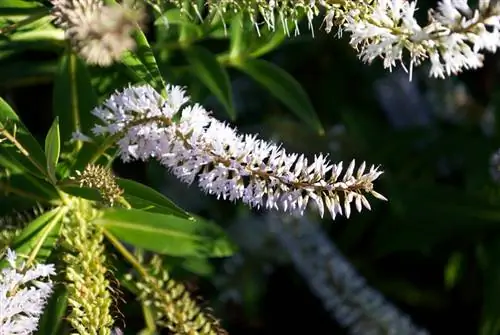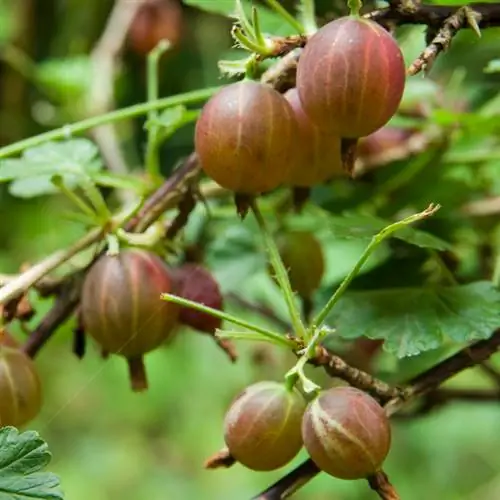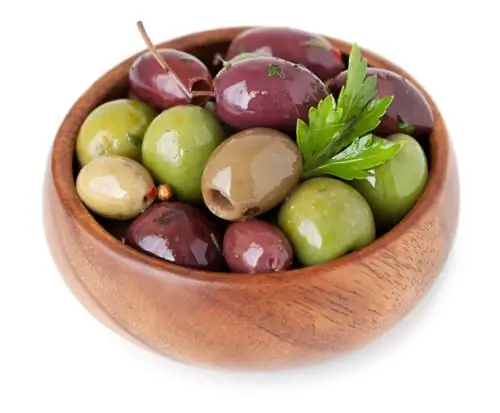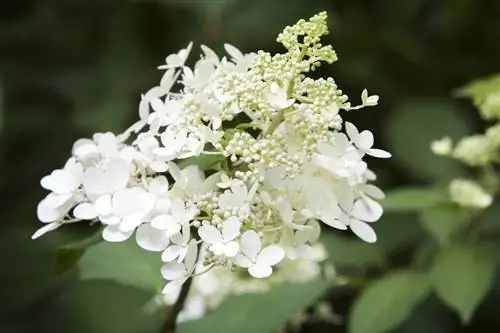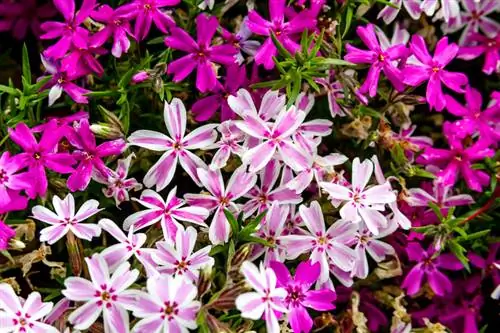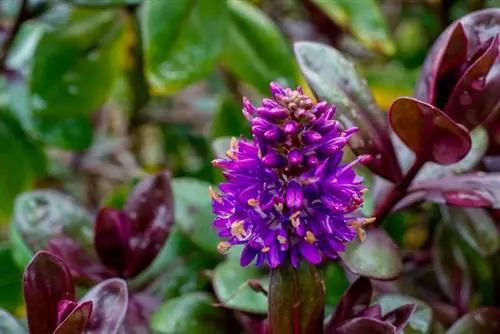- Author admin leonars@hobbygardeners.com.
- Public 2023-12-16 16:46.
- Last modified 2025-06-01 06:02.
There are countless species and cultivars of the shrub veronica or hebe. Over 140 varieties are known so far. The perennial belongs to the plantain family and originally comes from New Zealand. Only a few varieties can be cultivated in our latitudes.
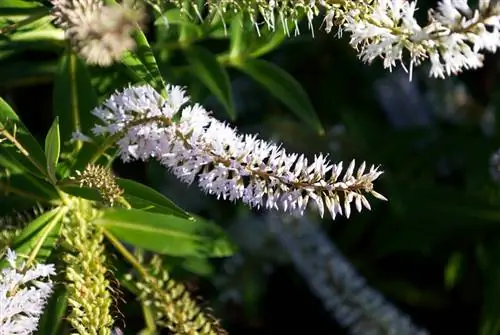
Which Hebe varieties are suitable for temperate climates?
Hebe varieties that can be grown in temperate climates include Hebe addenda, Hebe andersonii, Hebe armstrongii, Hebe “Green Globe”, Hebe salicifolia, Hebe speciosa, Hebe ochraea and Hebe pimeleoides var.glaucocaerulia. These varieties vary in height, flower color, flowering time and winter hardiness.
Not all Hebe varieties have beautiful flowers
Hebe or shrub veronica is not only available as a flowering plant, but it is also valued as an evergreen ornamental perennial in the garden or for the pot. The different leaf shapes play a major role. They differ in size, color and shape.
The different leaf colors can be used to create beautiful accents in the garden. The palette of leaf colors:
- juicy-green
- light-green
- yellowish
- blue-gray
- bluish-black
Some Hebe varieties resemble conifers due to their leaf shape, but are classified in the genus “Veronica”.
Varieties of Hebe that can also be grown here
| Variety name | Height | Flower color | Flowering time | Winter hardiness | Special features |
|---|---|---|---|---|---|
| Hebe addenda | 20 - 30 cm | pink, pink | August to October | conditionally hardy | for beds and pots |
| Hebe andersonii | up to 60 cm | violet | August to September | not hardy | big leaves |
| Hebe armstrongii | up to 100 cm | inconspicuous | May to June | conditionally hardy | Suitable for tubs |
| Hebe “Green Globe” | up to 50 cm | no flowers | - | conditionally hardy | cut compatible |
| Hebe salicifolia | up to 120 cm | white, purple | June to August | conditionally hardy | Beds and pots |
| Hebe speciosa | up to 120 cm | blue, purple | July to September | conditionally hardy | Beds and pots |
| Hebe ochraea | up to 40 cm | blue, purple | July to September | conditionally hardy | Beds and pots |
| Hebe pimeleoides var. glaucocaerulia | up to 30 cm | purple | July to August | not hardy | potted plant |
Not all Hebe varieties are hardy
Most Hebe species can only tolerate moderate frost up to a maximum of minus five degrees. That's why it's recommended to grow Hebe in a bucket.
Basically, large-leaved species tolerate less frost than small-leaved species.
The flowering time also depends on the variety. Some species are early bloomers, while others bloom in the fall. The flowers of the Hebe Green Globe variety are completely inconspicuous.
Tip
The name “Hebe” for shrub veronica goes back to the Greek goddess Hebe. She is considered the goddess of youth. The perennial is not poisonous.

